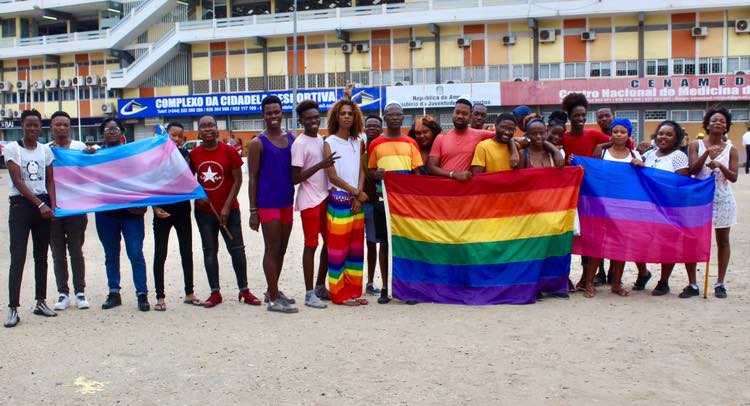Paula Sebastião is a member of the LBTIQ feminist group Arquivo Identidade Angolano. In Pride Month, she reflects on the progress and hope which fuels LGBTIQ activism in her country.
In July 2016, the first LGBTIQ festival, called FESTÍRIS, took place in Angola. This historic event was designed to create a space for the LGBTIQ community to meet and raise awareness on the challenges they faced through education and recreation. The festival was attended by allies from all parts of society, and it gave them a space to reflect and discuss the culture and reality of LGBTIQ people in Angola.
The success of the first FESTÍRIS was important to activists in the LGBTIQ movement in Angola. It showed us a path to raising society’s awareness on the issue. We understood that if we wanted to be heard and seen, we would have to begin to occupy more and more public space to strengthen and create bridges of access, inclusion and understanding of the LGBTIQ community.
Paving the way for rights
On January 23, 2019, the Angolan LGBTIQ community celebrated the approval of the new Penal Code. This was a unique and historic moment, especially in the African context, not only because of the elimination of Article 71, which was widely interpreted as criminalizing same-sex relationships, but also because discrimination against people on grounds of sexual orientation is now a crime.
This year, FESTÍRIS took place on 17 May, the International Day Against Homophobia, Biphobia and Transphobia. The festival celebrated the recent victory which came through years of struggle by Angolan LGBTIQ groups, and the implications of the new Penal Code. It also promoted reflection on the history of May 17, and the discriminatory reality that still affects LGBTIQ people in Angola. Through art exhibitions and discussions, theatre performances and film screenings, we wanted to sensitize people and raise awareness of homophobia, biphobia and transphobia, and pave the way for the implementation of the rights and guarantees provided for in the new Penal Code, and to reflect on the progress we must make in the future.
Access to employment for LGBTIQ people remains a socio-economic barrier, and the new Penal Code has introduced a provision that ensures non-discrimination in the workplace. In light of this, FESTÍRIS was used as a space to promote the work of people from the LGBTIQ community who have small businesses, and a space to discuss inclusion of the community in the labor market. Through a job fair featuring community entrepreneurs, we were able to showcase their skills and show that it is possible for LGBTQ people to thrive and contribute to industries outside the informal marketplace and sex work – industries that LGBTQ people are too often confined to.
A feeling of hope
The festival was a success, attended by over 300 people – both from within the LGBTQ community, and members of the general public. We were able to connect with partners and allies who will ensure that the festival can be repeated annually – from NGOs, UNDP, UNAIDS to supportive government embassies such as the Swedish Embassy and the Embassy of the Netherlands.
Despite the challenges that we LGBTIQ activists endured for FESTÍRIS to happen, we will never give up, because we know that activities like this are fundamental to promoting the rights of LGBTIQ people in Angola and allowing them to flourish.
We have a feeling of hope. We feel that it is possible to continue to work towards achieving the change we want – which is to reclaim our rights and walk towards equality for all.


